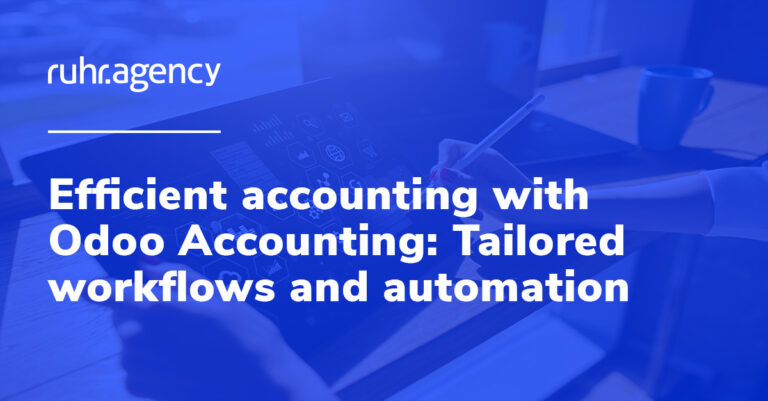Digitization has been on the agenda of many companies for several years. In big companies, business processes, production, sales, purchasing and much more have been digitized for a long time. Small and mid-sized companies, on the other hand, shied away from transformation for a long time, often arguing that digitization would entail too high costs with too little added value in the value chain. But here, too, a rethink has been taking place for some time. One reason for it: Digital transformation with the help of ERP, CRM and PMS has no longer been the preserve of the large providers, whose software is completely oversized and too cost-intensive, especially for small and mid-sized companies, but also for start-ups.
A lot has happened in recent years, especially in the ERP area. More and more lean, modular and scalable systems came and still come to the market. They are characterized above all by the fact that the cost-side barrier to entry is quite low. Thanks to their modularity, the systems can be individually adapted to customers’ needs and expanded as required. Today we would like to introduce you to Odoo, exactly that kind of flexible and lean ERP system.
Odoo is an open source ERP developed by the Belgian company Odoo S.A.. It is a modular application that covers various business areas, including sales, purchasing, warehouse management, production, accounting, human resources and much more. What makes Odoo special is that it offers a comprehensive suite of applications that are aligned and can be seamlessly integrated to create a complete ERP system.
Odoo, unlike many of its competitors, has been on the market for almost 20 years. In 2005, Fabien Pinckaers, the founder and current CEO of Odoo, began developing his first software product, TinyERP. Three years later, the name was changed to OpenERP. The company began to grow rapidly and in 2010 OpenERP exceeded 100 employees. In 2014, however, it was renamed Odoo to reflect the broader scope of its functionality, which ranges from ERP (enterprise resource planning) to CRM (customer relationship management), e-commerce and other business applications.
The source code of Odoo is freely available and can be improved and extended by the community. In addition, a worldwide partner network ensures the implementation and further development of the software.
Odoo integrates seamlessly with other applications, such as payment and shipping service providers, e-commerce platforms, and marketing automation tools. This makes it a versatile and powerful choice for businesses of all sizes and industries.
As mentioned earlier, Odoo is modular and can be customized to meet the company’s business needs through a variety of applications. The most important apps include…
- Accounting
- Inventory
- MRP (Production)
- Sales
- Presales (CRM)
Accounting
The heart of any business is its finances. With the Accounting app, you not only have an overview of your customers’ payment history, but you can also manage customer and supplier invoices, carry out transfers, create invoices and much more. Odoo’s Accounting App also offers you support in monitoring and analyzing your finances with the help of functions such as interfaces to all common payment service providers, VAT management, budgeting and detailed reporting. A DATEV export is also available, which facilitates communication with tax advisors and integration with accounting software.
Inventory
With the Inventory App from Odoo you can optimize your warehouse logistics. Therefore Odoo provides the warehouse management with duplicate entries. Whether multiple warehouses, dropshipping or cross-docking – Odoo’s Inventory App offers automation capabilities for all scenarios. The application is seamlessly integrated with Odoo’s other apps and therefore provides you with meaningful reports on inventory movements or stock levels.
Barcodes are widely used today and have a key role to play in many industries in recording and managing inventory and goods movements. This is also the case with the use of Odoo. For warehouse management, Odoo provides a native barcode app for mobile devices with extensive functions.
Production
With the MRP app, Odoo also offers an application for production, unlike many other lean ERP systems. It is fully integrated with other Odoo apps and offers functionalities from production planning and engineering to manufacturing, quality control and maintenance.
Sales & Presales
Sales is the cornerstone of a company. Here, too, Odoo offers suitable applications to ensure a smooth process. Odoo CRM allows you to track leads, maintain contacts and customers, and follow up on quotes. For closing sales, the sales app offers the possibility to send offers, to directly conclude contracts online with an e-signature or to conclude payments online.
Conclusion
Odoo is already very established compared to other ERP systems and is very much adapted to customer needs through constant further development by the community. The modular system allows very flexible adaptation to individual requirements and the large number of apps covers a wide range of areas that make daily business very efficient.




